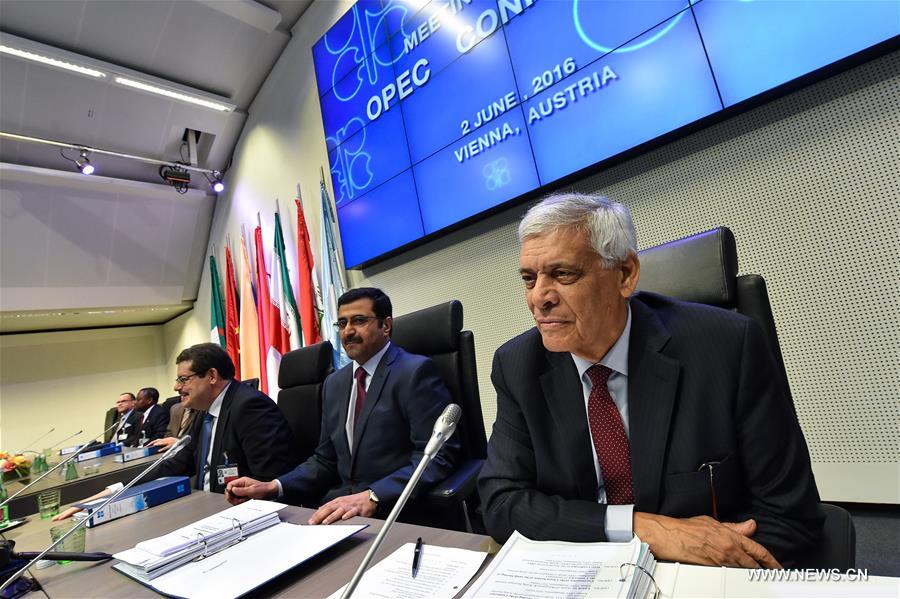Related reading:
VIENNA, June 2 (Xinhua) -- The Organization of the Petroleum Exporting Countries (OPEC) once again failed to set an oil output quota after a meeting held here on Thursday, an OPEC official has announced.

Abdallah Salem el-Badri (R), secretary-general of the Organization of the Petroleum Exporting Countries (OPEC), rotating president of OPEC and Minister of Energy and Industry of Qatar, attends the 169th meeting of the OPEC conference in Vienna, capital of Austria, on June 2, 2016. (Xinhua/Qian Yi)
After a meeting lasting four hours, OPEC oil ministers failed to agree on an output ceiling, and decided to meet again in Vienna on Nov. 30.
This is the second time OPEC has failed to work out an output ceiling at the conference in Vienna, following the meeting last winter.
This could be a sign the gap between the cartel is getting wider over the market strategy and interest.
According to media reports, Iran wants its oil output ceiling to reach pre-sanction levels while other member states adhered to different quotas, to which Saudi Arabia disagreed.
"Without country quotas, OPEC cannot control anything," Iranian minister of petroleum Bijan Zanganeh told reporters, who said the pre-sanction quota -- 14.5 percent of OPEC's general output -- was fair for Tehran.
Iran's current oil output of 3.56 million barrels per day is close to its pre-sanctions production of 3.7 million barrels per day.
Saudi Arabia, the leading oil producer in OPEC, will continue its policy of low oil price strategy, analysts said.
OPEC pumps around 32.5 million barrels of oil per day, 2.5 million barrels higher than the ceiling set last summer in Vienna.
"Since its last meeting in December 2015, crude oil prices have risen by more than 80 percent," OPEC said in a press release, "This is testament to the fact that the market is moving through the balancing process," the oil cartel said.
OPEC believes the demand growth remains relatively healthy considering recent economic challenges and developments.
In such situation, an output agreement could be difficult within OPEC and also with the non-OPEC oil producers.
Jason Schenker, president and chief economist of market research firm Prestige Economics, said the strategy of OPEC and the low oil price have influenced U.S. Shell oil, making many companies cut job positions and earn less profit.
The International Energy Agency estimated the oil supply exceeded demand by an average of 1.3 million barrels per day in the first six months of 2016.
Before the meeting, world oil prices rose to around 50 U.S. dollars per barrel.
Mohammed Sanusi Barkindo from Nigeria was appointed as new secretary general of the organization and is to take the office on Aug. 1.















